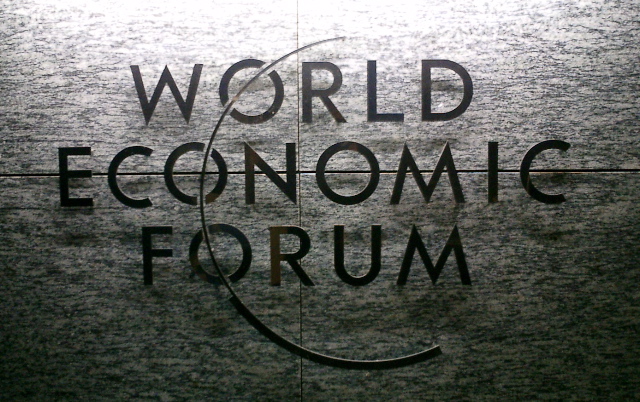Leaders reflect on ethical capitalism with economic news gloomy
 Davos, Switzerland - With the headlines screaming the gloom that economic growth this year will be the worst since World War II, several leading politicians and business people discussed the future of capitalism Thursday, with the word "values" taking center stage.
Davos, Switzerland - With the headlines screaming the gloom that economic growth this year will be the worst since World War II, several leading politicians and business people discussed the future of capitalism Thursday, with the word "values" taking center stage.
"Capitalism cannot work unless it is based on shared values, and justice," said former British premier Tony Blair at the World Economic Forum annual meeting in Davos.
Blair, who said the "financial system has failed" insisted the free enterprise system was still vital, but pushed for "globalization based on values."
Indra Nooyi, the chief of Pepsico, the soft drink and snack food manufacturer, stressed that "Capitalism is good" but that the "notion of the mighty buck won over morality and ethics," blaming Wall Street for damaging Main Street industries.
Looking back at the causes of the crisis, former US president Bill Clinton, in a one-on-one conversation with the Forum's founder Klaus Schwab, attacked the fiscal and spending policies of the Bush administration.
"Right now the house is on fire and we need to put it out as quickly as we can," Clinton said, while backing the new White House under Barack Obama.
The former president also said that given the interconnectivity of the modern world, other countries, such as China, would have to buy US debt to held it get out of the crisis it started, so that American consumers could purchase those nations' exports.
"People will still make money but not like in past decade, and that's a good thing," he said about the post crisis world.
Responding to a speech from the previous night by the Russian leader the night before, in which he warned against protectionism and excessive state intervention in the economy, Clinton said he was "glad to hear Prime Minister Putin has come out in favour of free enterprise."
He took a theatrical pause, moved his tongue around his mouth and added, "I hope it works out for him."
The session on capitalism also included Israeli President Shimon Peres, who pushed for an ideology which would "create wealth" instead of spreading wealth.
Peres, who rose to political heights in his country through the Labour party, which he only left in recent years, abandoned previous ideologies and instead said advances were needed in the sciences, including alternative energies, and education.
The focus of the annual meeting was the post-crisis world and the American preacher Jim Wallis said he hoped the crisis would change people for the better.
"The question is how will this crisis change us, change the way we think, make decisions, change the habits of the heart, change how we do business," said Wallis, a civil rights activist who is seen as standing to the left of the mainstream Evangelical movement.
He echoed, in more spiritual terms, what Stephen Green of HSBC had already noted, that "no amount of rules can enforce good behaviour" and added that "we need to get the value system right."
"Without values within companies, regulation will not do the job for us," Green said.
But while change was needed, the political and business participants warned against protectionism in trade and that new regulations "should not stifle entreupenuership, innovation," according to James Schiro, of Zurich Financial Services, the insurance group.
Blair, sticking in a final word, said the state had a role to play in getting the world out of crisis, but that it was "not the answer," putting his faith instead in the markets, which he was far from ready to eulogize. (dpa)